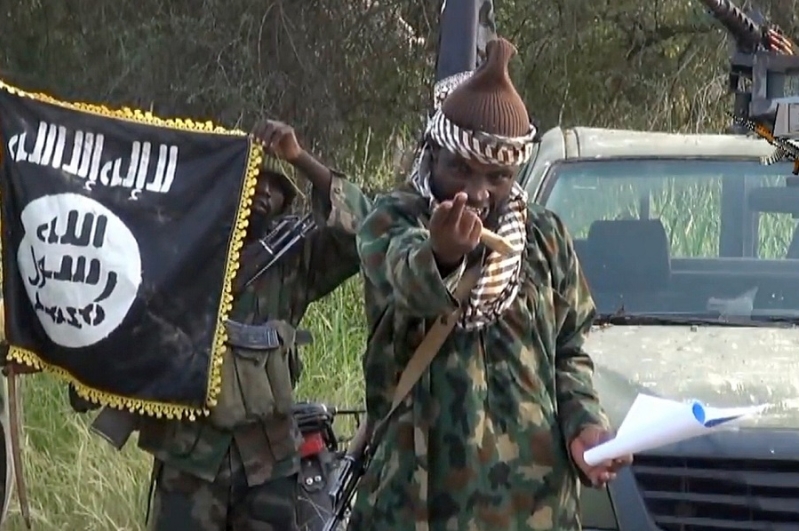
The Nigeria-based Islamist terror group Boko Haram has pledged its allegiance to ISIS in an audio statement over the weekend made purportedly by their leader, Abubakar Shekau.
According to Nima Elbagir, Paul Cruickshank and Mohammed Tawfeeq of CNN, the speaker in the audio tape claimed the group's "allegiance to the Caliph of the Muslims, Ibrahim ibn Awad ibn Ibrahim al-Husseini al-Qurashi," also known as Abu Bakr al-Baghdadi, the leader of ISIS. While CNN has been unable to independently authenticate the message, Jacob Zenn of the Jamestown Foundation argued that the recording is authentic.
"Boko Haram joining the ISIS fold makes sense to both groups," Zenn said, claiming that the voice in the recording was from Shekau. "Boko Haram will get legitimacy, which will help its recruiting, funding and logistics as it expands into (French-speaking) West Africa. It will also get guidance from ISIS in media warfare and propaganda."
Zenn added that Boko Haram was once considered "a sort of outcast in the global Jihadi community," but now its alignment with ISIS makes the African terror group their "biggest affiliate."
"ISIS gets more international legitimacy as a global caliphate," Zenn said, adding that the alliance would become official once ISIS leaders like spokesman Abu Mohammad al Adnani issue a statement.
CNN reported on how Boko Haram aligned itself with ISIS, noting that it was a coming together of two factions.
"ISIS connected with former Ansaru fighters within Boko Haram and pressed them to further unify the group's ranks. The result was the formation of a unity general command between the two factions," Elbagir, Cruickshank and Tawfeeq wrote. "That involved bridging of some ideological differences between the al Qaeda-like Ansaru and the ultra-extreme 'takfiri'-like Shekau."
According to CNN, the pledge followed a period during which Shekau's faction mimicked ISIS, including praising the ISIS leader in their videos and photos. However, Simon Tisdall of The Guardian argued that Boko Haram's latest action only appeared to be "superficial" propaganda.
"It may, in fact, be more of a cry for help, given a recent string of defeats sustained by Boko Haram," Tisdall wrote. "Since January's gruesome and well-publicized massacre in Baga, on the border with Chad, when it butchered hundreds of civilians, Boko Haram has faced a concerted push-back from Nigeria's military and a nascent multinational force combining troops from Nigeria, Niger, Chad, Cameroon and Benin."
Tisdall reported that Shekau followed the ISIS example by declaring his own caliphate in Africa back in August.
"The group has made increasing use of social media such as Twitter and, like ISIS, has produced sophisticated videos of beheadings, complete with deliberately scary soundtracks and voice-overs," Tisdall wrote. "Some observers have interpreted this as a sign of direct cooperation."
Tisdall noted that Boko Haram tried to copy tactics used by ISIS militants as part of its recruitment techniques, which included using extreme violence against civilians.
"This propensity for mayhem has also made them the most feared among terrorist groups," Tisdall wrote. "In ISIS's case, its notoriety appears to have boosted foreign recruitment, especially among young European Muslims."
However, CNN reported that U.S. intelligence officials were not worried about this development in the region. They believed that racism within ISIS would prevent both organizations from carrying out effective terror attacks.
"The CIA's analysis has been that Boko Haram is very African and rooted in that region's Islamic practices, even if they have similar fundamentalist interpretations of Islam," Elbagir, Cruickshank and Tawfeeq wrote. "And ISIS's Arab leadership and membership tends to have racist attitudes toward blacks, not unlike the society they come from."
Unlike the CIA, Tisdall contended that this development could be the West's "worst nightmare."
"For western governments, this scenario conjures up their worst nightmare - the prospect of joined-up, globalized jihad," Tisdall wrote.






